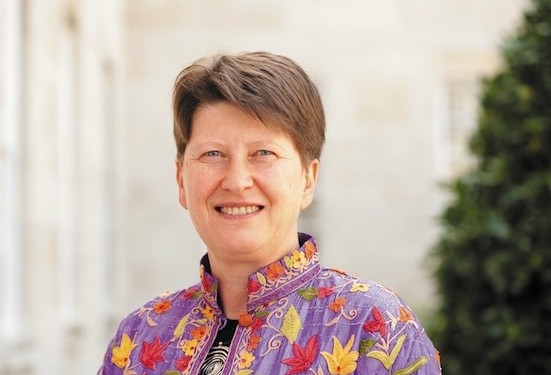CE: Although people tend to associate the University of Nottingham with our international campuses in Malaysia and China, I think that obscures the fact that we have a very broad-based internationalisation strategy. If you start off at the UK campus, then we’ve got a lot of work going on around the internationalisation of the curriculum, around content and skills.
“Our international campuses obscure the fact that we have a very broad-based internationalisation strategy”
We have a lot of activity in student integration, trying to get more involvement between the international and UK students to facilitate some of the learning that leads from that. And we have some interesting programmes which involve substantial periods of study outside of the UK.
Then [we have] conventional mobility and recruitment related activity; partnerships for business engagement and for research; then through to the campuses and the work we do with alumni groups. So it is very, very broad. What I would say is that we take the view that we can’t do everything everywhere, so we try to identify by region what we want to do and in which location.
The PIE: Do you run any twinning programmes?
CE: We do run twinning programmes, for example in Thailand and Indonesia, but we don’t really get involved in franchising or validation. We do find teaching partnerships to be beneficial and we’ve started to do a lot of joint and dual master’s programmes with the course split over two locations.
We’re also looking to do some cohort-based programmes, where we bring together students from Nottingham and another institution and they study initially at Nottingham, then they move to the other institution.
The PIE: You prefer to call to your campuses in Malaysia and China “international” rather than “branch” campuses? Why?
CE: Being a little pedantic, I try not to call them branch campuses because it always implies something a little bit partial – not quite the real thing. One of the things we have really tried to do, and I think we’ve succeeded to a degree, is to make sure those campuses have a similar set of activities as you would get in the UK. So they are research active, they are bringing in grants and they are working in partnership with other universities and business.
I try not to call them branch campuses because it always implies something a little bit partial – not quite the real thing
The PIE: What are the challenges of working transnationally?
CE: Ensuring the University of Nottingham brand and its standards are upheld across our operations is the main challenge. With the campus model we have direct input. It becomes more challenging in our partnership models, because there you don’t have the same set of controls and involvement.
Partnerships have always been about building close relationships, building trust, taking the long-term view, and being able to demonstrate to our partners that it is in both of our interests to focus on quality. I think we have had some success in doing that, but it is something that needs to be completely monitored and it does rely on good relationships and mutual trust.
The PIE: How have the UK’s student visa curbs hit Nottingham’s internationalisation activities? [more>>]
Related articles




2 Responses to Christine Ennew, University of Nottingham, UK